#African Blogging
Explore tagged Tumblr posts
Text

#African Digital Marketing#Digital Marketing Africa#Africa Online Marketing#African SEO#Social Media Marketing Africa#Content Marketing Africa#Email Marketing Africa#Digital Advertising Africa#African Internet Marketing#Africa PPC#Search Engine Optimization Africa#Africa SEM#African Digital Strategy#Mobile Marketing Africa#Video Marketing Africa#Influencer Marketing Africa#Africa Digital Analytics#African E-commerce Marketing#Africa Digital Branding#Online Reputation Management Africa#Africa Digital Consultancy#Digital Marketing Training Africa#Africa Digital Trends#Africa Digital Innovation#African Digital Transformation#Africa Social Media Management#Africa Digital Campaigns#African Email Campaigns#Africa Digital Content Creation#African Blogging
0 notes
Text










Nuthin’ But a “Black” Thang Baby ✊🏿
#black girl blogger#black men#black power#black people#black history#black history month#black women#we are history#everyday is black history#blck history#our history#african america history#our story#happy black history#history#black and proud#black people are the blueprint#this blog is ran by a black woman#black black black#black lives matter#black life#im black#black is beautiful#blessed#black beauty#black#our history our story our legacy#our life#you don't know our struggles#blktumblr
2K notes
·
View notes
Text

Limited Financial Literacy and Wealth Management in the Black Community: A Garveyite Perspective
Introduction: Economic Power as the Foundation of Black Liberation
Marcus Garvey understood that political freedom is meaningless without economic independence. He believed that for Black people to be truly free, they had to control their own economies, industries, and institutions. Garvey once stated:
“A race that is solely dependent upon another for its economic existence sooner or later dies.”
Yet, in modern times, the Black community continues to struggle with limited financial literacy, poor wealth management, and economic dependency.
Generational wealth is rarely passed down due to a lack of long-term financial planning.
Black spending power is high, yet most of this wealth flows out of Black communities into white-owned corporations.
Many Black families live paycheck to paycheck, unable to invest in land, businesses, or other wealth-building assets.
From a Garveyite perspective, this lack of financial education and economic control is one of the greatest obstacles to Black liberation. Until Black people master financial literacy and wealth management, they will remain vulnerable to exploitation and economic servitude.
1. The Historical Roots of Black Economic Disempowerment
A. The Legacy of Slavery and Economic Exclusion
During slavery, Black people were denied the right to own property, earn wages, or accumulate wealth.
After emancipation, racist policies such as Black Codes, Jim Crow laws, and sharecropping ensured that Black people remained economically oppressed.
Redlining, discriminatory banking practices, and racist housing policies prevented Black families from building generational wealth.
B. The Destruction of Black Economic Movements
Throughout history, whenever Black people built strong economic foundations, white supremacy actively sabotaged them:
Tulsa’s Black Wall Street (1921) was burned down in one of the worst race massacres in U.S. history.
Rosewood, Florida (1923) was another thriving Black community destroyed by racist mobs.
Marcus Garvey’s Black Star Line was sabotaged by the U.S. government agencies and internal betrayals, preventing Black economic self-sufficiency.
These attacks created a culture of economic fear and dependency, where many Black people stopped believing in their ability to control their own wealth.
C. The Shift Toward Consumerism Over Ownership
Instead of prioritizing land, business ownership, and self-sufficiency, many Black communities have been conditioned to focus on spending rather than investing.
Integration into white economies led to the collapse of many Black-owned businesses, as Black consumers began spending their wealth outside of their own communities.
Today, Black buying power in the U.S. exceeds $1.7 trillion, yet very little of that money stays in Black communities.
This cycle of high spending and low investment keeps Black people economically powerless.
2. The Consequences of Limited Financial Literacy in the Black Community
A. Generational Poverty & Wealth Gaps
The average Black family's wealth is significantly lower than that of white families due to a lack of inherited assets.
Many Black families do not pass down property, businesses, or financial knowledge, forcing each generation to start over.
Without financial literacy, many Black people fall into debt traps, poor credit, and unstable financial situations.
B. Economic Dependency & Vulnerability
Black people remain financially dependent on white-owned banks, businesses, and corporations.
Without economic independence, Black workers are at the mercy of racist hiring practices, wage discrimination, and economic downturns.
The lack of Black-owned financial institutions means Black wealth is constantly controlled by non-Black interests.
C. Lack of Black Business Ownership & Community Development
Only a small percentage of Black businesses receive venture capital, bank loans, or community investment.
Many Black entrepreneurs struggle to scale their businesses due to limited financial education and funding access.
Black neighborhoods often lack grocery stores, banks, and essential businesses, making them reliant on white-owned corporations.
Without strong Black financial networks, Black communities remain economically stagnant.
3. The Garveyite Solution: Financial Literacy as a Tool for Black Liberation
A. Teaching Financial Literacy from an Early Age
Black families must prioritize financial education in the home, teaching children about:
Saving and investing
Credit and debt management
Entrepreneurship and wealth-building
Schools in Black communities should incorporate mandatory financial literacy programs focused on:
Budgeting and money management
Stock market and investment strategies
Real estate and homeownership
Education is the first step toward economic empowerment.
B. Creating Black-Owned Financial Institutions
More Black-owned banks and credit unions must be established to provide financial services that cater to Black economic needs.
Black people should redirect their money into Black-owned banks and investment funds to build community wealth.
Cooperative economics should be prioritized, where Black investors pool resources to fund businesses, real estate, and development projects.
Garvey believed that Black people must control their own financial institutions to ensure true independence.
C. Prioritizing Ownership Over Consumerism
Black people must shift from being consumers to being investors and producers.
Instead of spending billions on luxury brands, Black communities must invest in land, businesses, and industries.
Black celebrities, athletes, and high-income earners should prioritize investing in Black-owned enterprises instead of white-owned corporations.
Wealth accumulation should be about long-term growth, not short-term spending.
D. Rebuilding Black Business Districts & Economic Hubs
Black communities must establish modern "Black Wall Streets" that focus on:
Black-owned banks and financial institutions.
Black manufacturing and production centres.
Pan-African trade networks.
Government policies should be challenged to allocate reparations, land grants, and business funding to Black entrepreneurs.
Economic self-reliance must be a core principle of Black liberation.
4. Action Plan: Steps to Financial Empowerment in the Black Community
A. Individual & Family-Level Actions
Open accounts with Black-owned banks and investment firms.
Teach children about saving, investing, and business ownership from an early age.
Prioritize homeownership and land acquisition over renting and temporary wealth.
B. Community-Level Actions
Establish financial literacy workshops in Black schools, churches, and community centres.
Support Black entrepreneurs and Black-owned businesses by intentionally spending within the community.
Form investment groups and cooperative businesses to pool resources and fund economic initiatives.
C. Global Black Economic Collaboration
African nations and the Black diaspora must create international trade agreements that empower Black businesses.
Encourage Pan-African banking and investment partnerships between Africa, the Caribbean, and Black America.
Develop Black-led multinational corporations that can compete with global industries.
Garvey envisioned a self-sustaining Black economy that connected Africa and the diaspora—this vision must be revived.
Conclusion: Black Liberation Requires Economic Independence
Garvey warned that:
"A people without the knowledge of their past history, origin, and culture is like a tree without roots." But financial illiteracy is like a tree without soil—without economic power, Black liberation is impossible.
If Black people continue to:
Spend instead of invest,
Finance non-Black businesses instead of building their own,
Ignore financial literacy instead of mastering wealth management,
They will remain economically enslaved.
However, if Black people:
Prioritize financial education and generational wealth,
Invest in Black-owned banks, businesses, and industries,
Build economic self-sufficiency through Pan-African cooperation,
Then true Black liberation can be achieved.
Garvey’s call remains: “Up, you mighty race, accomplish what you will!”
#black history#black people#blacktumblr#black tumblr#pan africanism#black#black conscious#africa#black power#black empowering#blog#BlackWallStreetRevival#FinancialFreedom#buy black#BlackWealth#EconomicLiberation#Garveyism#marcus garvey
197 notes
·
View notes
Text
Pray for our Brothers and Sisters in Nigeria! Pray for the Christians of Africa!




Their deaths are silenced by the media, not because they simply don't care, but because this is a war of the Kingdom of Light vs the kingdom of darkness!
#christian#christian girl#christian faith#christianity#christian blog#faith in jesus#jesus christ#christian bible#African christians#nigerian christians#christian persecution
158 notes
·
View notes
Text

#wild#wildlife#africa#jackal#travel#animal#namibia#etosha#etosha national park#kalahari#animals#animals of africa#wildlife photography#travel photography#animal photography#safari#savannah#namibian#black backed jackal#scavenger hunt#scavenger#african animals#travel blog#travels#african
655 notes
·
View notes
Note
the Egyptian fruit bat persnaps? :3
Absolutely!

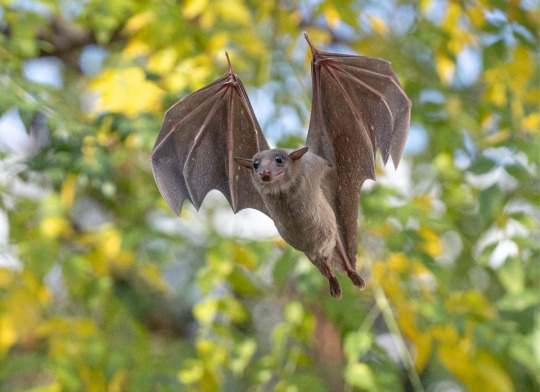
#african wildlife#middle eastern wildlife#bat#bats#fruit bat#egyptian fruit bat#mammalia#chiroptera#mega bat#animal polls#poll blog#my polls#animals#polls#tumblr polls
319 notes
·
View notes
Text

its evil that i have to work straight after school
#makeup#fashion#black girl magic#2014 tumblr#artists on tumblr#barbie#black beauty#2016 tumblr#blackwhite#face card#work#girlblog#black girl aesthetic#blogging#east african#idk how to tag this#black girl moodboard#moodboard
71 notes
·
View notes
Text


african astrology signs
disclaimer - i’m not african or extremely informed about african astrology. i am new to it, but i like posting about all the different types of astrology on my account. all the information i’m using is from the articles below ♡
these signs and traits are based on the african astrology passed down from the greeks. there are multiple types of african astrology such as egyptian, but this is one of the oldest ones ♡
these are only some of the main characteristics, but if i do more research in the future i may make more in depth posts about each signs traits ♡
sources i used - one // two // three // four // five ♡
more types of astrology ♡


father (the baobab tree):
➛ january 4th to february 3rd
traits - honest, thoughtful, loves their freedom, realistic, good business skills, often successful, struggles with anxiety a lot
mother (the wealth of amber and silver):
➛ february 4th to march 5th
traits - strong self discipline, quick intellect, known as the sign of wealth, mood can change fairly quick, bad temper
family:
➛ march 6th to april 4th
traits - affectionate, sociable, emotionally reserved, gives good advice, fits in well, struggles with letting people take advantage of them
son (small services to the neighborhood):
➛ april 5th to may 4th
traits - good at making friends, has the ability to bounce back quickly and go from a really bad point to a really good one, indecisive, stubborn at times
daughter (the market):
➛ may 5th to june 4th
traits - likes peace and harmony, doesn’t enjoy arguments, feminine, always wasting their time and effort on relationships that won’t last, can act dramatic at times
uncle (the ancestor):
➛ june 5th to july 4th
traits - leader, always rules groups, good sense of humor, self absorbed
witch (the judge):
➛ july 5th to august 4th
traits - quick thinker when not under stress, can analyze situations well, helps others, good at roasting people, overly judgmental
lion (the kola nut):
➛ august 5th to september 3rd
traits - high energy, wise, clairvoyant, confident, sassy, unstable emotions, annoying at times
antelope (the traveler):
➛ september 4th to october 3rd
traits - empathetic, loves to travel, complex personality, misunderstood a lot, overly sensitive
the sage (the distance):
➛ october 4th to november 3rd
traits - creative, strong character, romantic, enthusiastic, many poets have this sign, can become successful if they stop living in fear
aunt (the child of the world):
➛ november 4th to december 3rd
traits - gentle, powerful, generous, kind, devoted, may struggle to come outside of comfort zone
wealth (the harvest and the granary):
➛ december 4th to january 3rd
traits - positive, doesn’t fall in love quick, prefers to spend time alone and would benefit from spending most of their time alone, often wealthy, can struggle to trust intuition

#african astrology#african#astrology#astrology blog#astrology chart#birth chart#astrology community#astro community#types of astrology
223 notes
·
View notes
Text
AFTER SUNSET
In times when thoughts get lost and hearts feel pain,I’d like to take you on a journey, a heartfelt refrain.Imagine a sunrise, with hope’s warm embrace,A fresh start, like a smile on a familiar face.But as the sun climbs high, sometimes it seems,Darkness lingers, quenching our hopes and dreams.They say, “darkest before dawn,” we’ve heard,But I believe in a tiny star, like a song from a little…

View On WordPress
1 note
·
View note
Text

#Video Marketing Africa#Influencer Marketing Africa#Africa Digital Analytics#African E-commerce Marketing#Africa Digital Branding#Online Reputation Management Africa#Africa Digital Consultancy#Digital Marketing Training Africa#Africa Digital Trends#Africa Digital Innovation#African Digital Transformation#Africa Social Media Management#Africa Digital Campaigns#African Email Campaigns#Africa Digital Content Creation#African Blogging#Africa Website Optimization#African Digital Tools#Africa Digital Platforms#Africa Digital Solutions#African Digital Experts
0 notes
Text
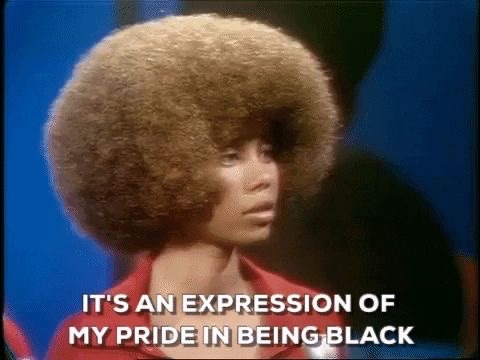


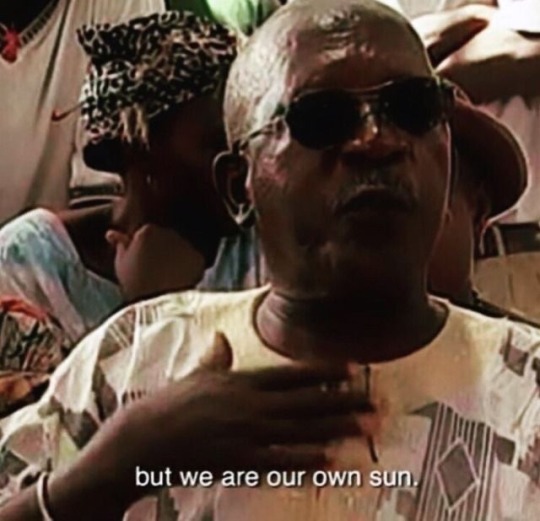
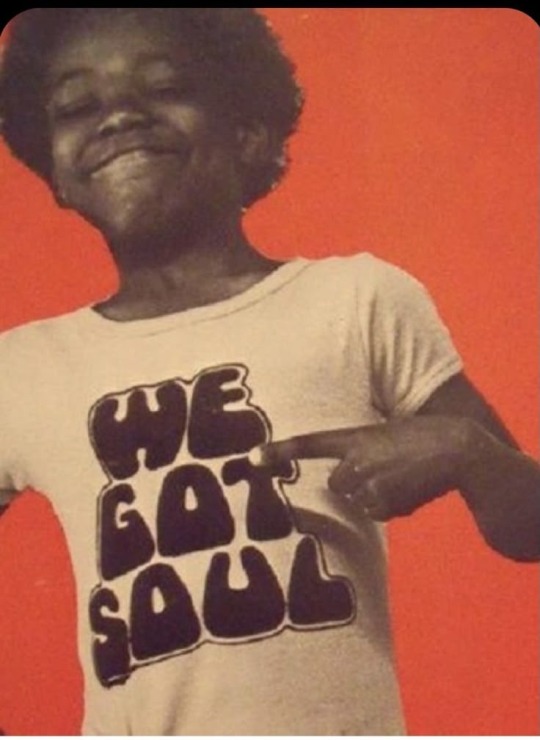

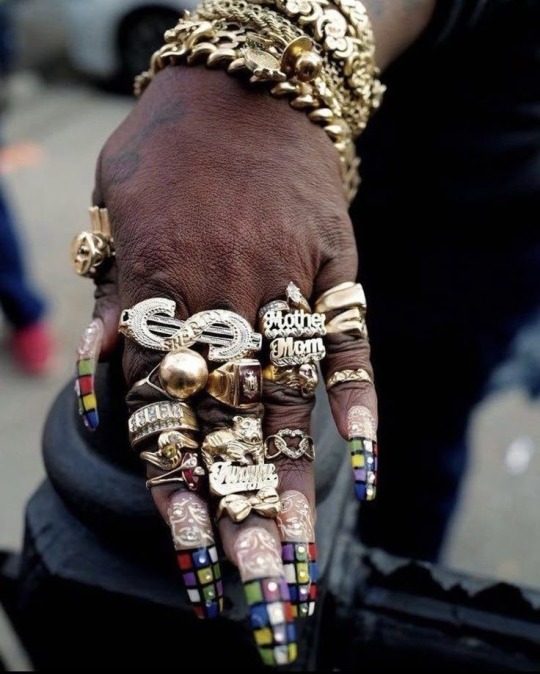



Our story is forever
Black is history
History is Black ✊🏿
#black girl aesthetic#black girl blogger#black girls of tumblr#black girl magic#black girl joy#black men#black power#black history#black history month#black people have rights#black people are the blueprint#black people#blues came from black culture#black culture#black caribbean#black lives matter#black excellence#90s culture#80s culture#black boy joy#black blogger#jet black#black and proud#black is better#black girl runs this blog#black people are luxury#black is gold#black is divine#soulaan#african american
2K notes
·
View notes
Text
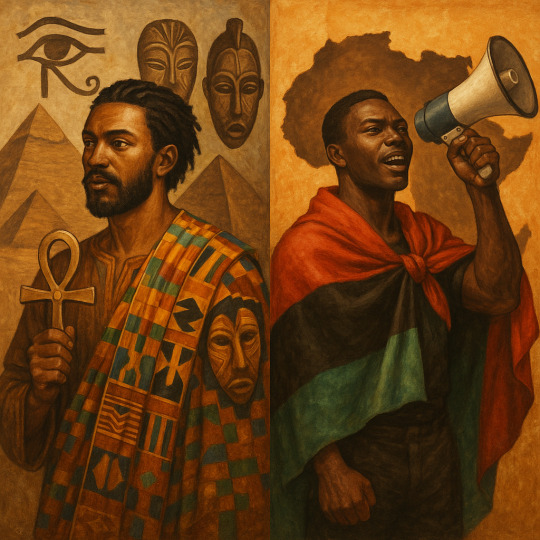
Roots and Routes: The Sharp Divide Between Afrocentrism and Pan-Africanism Through a Garveyite Lens
Introduction:
Too often in today’s discourse, Pan-Africanism and Afrocentrism are used interchangeably. But from a Garveyite perspective—rooted in organization, political power, race-first philosophy, and global Black unity—this conflation is both incorrect and dangerous. While both frameworks attempt to restore dignity to African people, their core philosophies, strategies, and end goals differ profoundly. One is a worldview rooted in aesthetic restoration and cultural reclamation; the other is a revolutionary project of global liberation, nation-building, and self-determination. Let’s draw the line.
1. Definitions: Surface vs Structure
Afrocentrism is primarily an intellectual and cultural movement. It seeks to reframe history, philosophy, and identity from an African-centered perspective. It reclaims ancient African contributions to civilization (Kemet, Nubia, etc.), reinterprets historical narratives, and critiques Eurocentric frameworks in education, religion, and science. Its goal is to mentally decolonize.
Pan-Africanism, especially in its Garveyite form, is a political movement—built on race pride, economic independence, self-reliance, and the unification of all African people under one flag. It calls for African control of African affairs, be it on the continent or in the diaspora. It doesn’t just want to rewrite history—it wants to make history.
Garveyism, the most militant and organized strand of Pan-Africanism, understands this difference and demands more than mental liberation. It demands power—political, economic, and military.
2. Cultural Reconnection vs Political Realignment
Afrocentrism often revolves around symbolic reclamation—names, clothes, spiritual systems, and a sense of identity. It’s about replacing European heroes with African ones, reclaiming ancestral memory, and taking pride in Blackness.
But Pan-Africanism asks: What systems do we control? Who governs our lands? Who owns the resources? It sees cultural pride as a tool, not an endpoint. Garveyites assert: What good is reclaiming a name or deity if we still live under foreign rule, economic dependency, and systemic subjugation?
Afrocentrism may critique oppression. Pan-Africanism strategizes to end it.
3. Individual Liberation vs Collective Nationhood
Afrocentrism often emphasizes personal or group enlightenment—an internal transformation through African-centered knowledge and spirituality. While powerful, this path often lacks organized mass movement or material outcomes.
Garveyite Pan-Africanism is inherently collectivist. It calls for global Black unity—not just in spirit but in institution. Garvey’s UNIA (Universal Negro Improvement Association) built shipping lines, schools, factories, newspapers, and provisional governments. The aim wasn’t just consciousness—but sovereignty.
Afrocentrism may change minds. Pan-Africanism changes conditions.
4. Diaspora Focus vs Global Black Nation
Most Afrocentric discourse is diaspora-centric, particularly African American in tone. Its critiques and solutions are often local, focused on Western systems of education, religion, and media.
Pan-Africanism—Garveyite Pan-Africanism especially—is transnational. It refuses to center the West. It sees Black people in America, the Caribbean, Africa, and Europe as one people with one destiny. Its map is global. Its aim is a worldwide African federation.
Garvey said: “Africa for the Africans, at home and abroad.” Afrocentrism too often forgets the abroad is not just where we are, but where we must unite to return, rebuild, and reign.
5. Militancy and Mass Movement
Garveyism believes Black liberation is a war. It’s not poetic or symbolic—it’s real. It demands discipline, order, strategy, and mass mobilization. The UNIA was a blueprint: uniforms, oaths, ranks, black cross nurses, and political offices. That wasn’t cosplay—it was preparation for sovereignty.
Afrocentrism is rarely militant. It is more academic, introspective, and expressive. There is no Afrocentric equivalent to the UNIA or the Black Star Line. No global organizational machinery. No chain of command. No flag to fight under.
Garveyites know that without structure, you cannot build power.
6. Pitfalls of Afrocentrism: The Garveyite Warning
Myth-making without organizing: Afrocentrism sometimes indulges in unverified or romanticized histories (e.g., everyone being Moors, Israelites, or Pharaohs), which can become distractions.
Individualism over institution: It often produces lectures, not organizations.
Confusion over unity: It can fracture along spiritual lines—Kemetic, Yoruba, Moorish, etc.—while Pan-Africanism aims to unify across these differences for political goals.
Silence on Africa today: Many Afrocentrists romanticize ancient Africa but have little to say about modern Africa’s struggles or Pan-African state-building efforts.
Garveyism stands firm: If it does not build power for African people worldwide—it’s not enough.
Conclusion: The African Race Needs Builders, Not Just Dreamers
Afrocentrism is not the enemy of Pan-Africanism—but it is not the substitute. Culture without sovereignty is performance. Identity without power is vulnerability. Garveyism demands we go beyond aesthetic reconnection and move toward global Black reconstruction.
As Garvey once thundered: “The Black man must build for himself. If others are to live by conquering, then he too must learn to conquer for his survival.”
Let us not be content dressing in Kente while begging for crumbs. Let us organize, unify, and take what is ours.
#GarveyiteTruth PanAfricanismNotJustAesthetic AfricaForTheAfricans RaceFirst NationBeforeNotion#black history#black people#blacktumblr#black tumblr#black#pan africanism#black conscious#africa#black power#black empowering#marcus garvey#garveyism#garveyite#afrocentrism#blog
128 notes
·
View notes
Text
Grow in Christ 🌻🌱🕊️✞
But grow in the grace and knowledge of our Lord and Savior Jesus Christ. To him be the glory both now and to the day of eternity. Amen. 2 Peter 3:18 🌱🌟✞

#christian photo#christian photography#2 Peter 3:18#Bible#Bible Verse#Word of God#Scripture#christian#christian girl#flower#nature#growth#south african christian#christian photographer#words#Grow in grace#Glory be to Christ#christian tumblr#faith in jesus#Jesus#God#Jesus Christ#christian blog#christianity#✝️umblr#chrumblr#Holy Spirit#Your love is enough#christian living#Thank You Holy Spirit 🕊️🌱✞
141 notes
·
View notes
Text

#namiba#africa#namib desert#namib naukluft#national park#desert#landscape#night#night photography#milkyway#milky way#travels#travel#outdoor photography#landscapes#travel blog#galaxy#long exposure#star photography#night photo#long exposure photography#desert landscape#light painting#night sky#african landscape#astro photography#desert photography
90 notes
·
View notes
Note
northern white-faced owl if it hasn't been done yet?
It certainly hasn't been done yet, good choice!


#african birds#between the sahara and the equator#northern white faced owl#bird#birds#owl#owls#strigiformes#strigidae#true owl#animal polls#poll blog#my polls#animals#polls#tumblr polls
54 notes
·
View notes
Text

#ai men#gay ai art#gay ai#handsome#male photography#male art#male beauty#gay men#male model#gay male#male physique#male figure#gay#gay model#ai gay#ai gay art#gay art#gay artist#gay artwork#gay blog#gay boys#gay fantasy art#gay guy#gay jock#gay love#gay photography#gay vintage#black beauty#black men#african men
83 notes
·
View notes